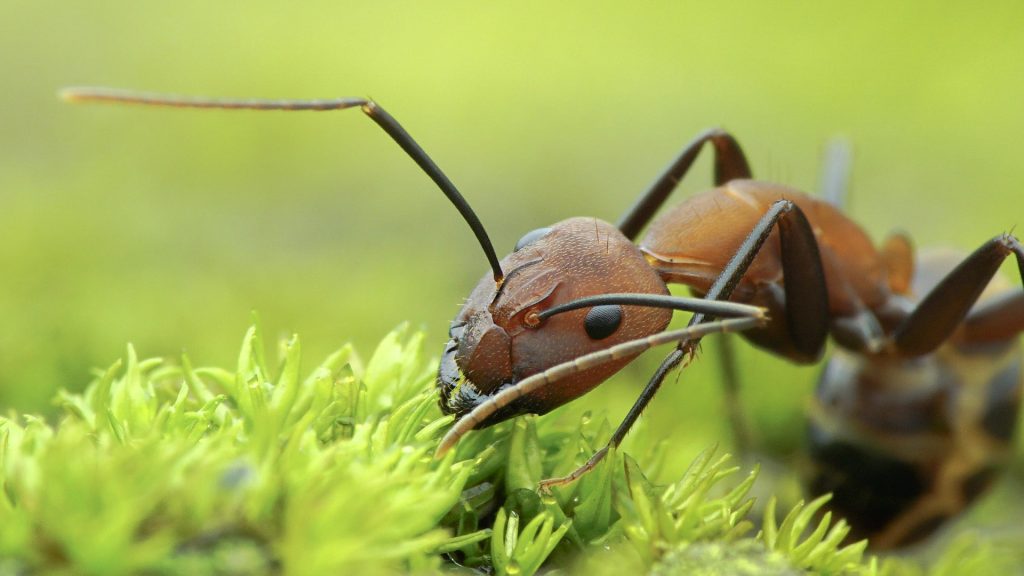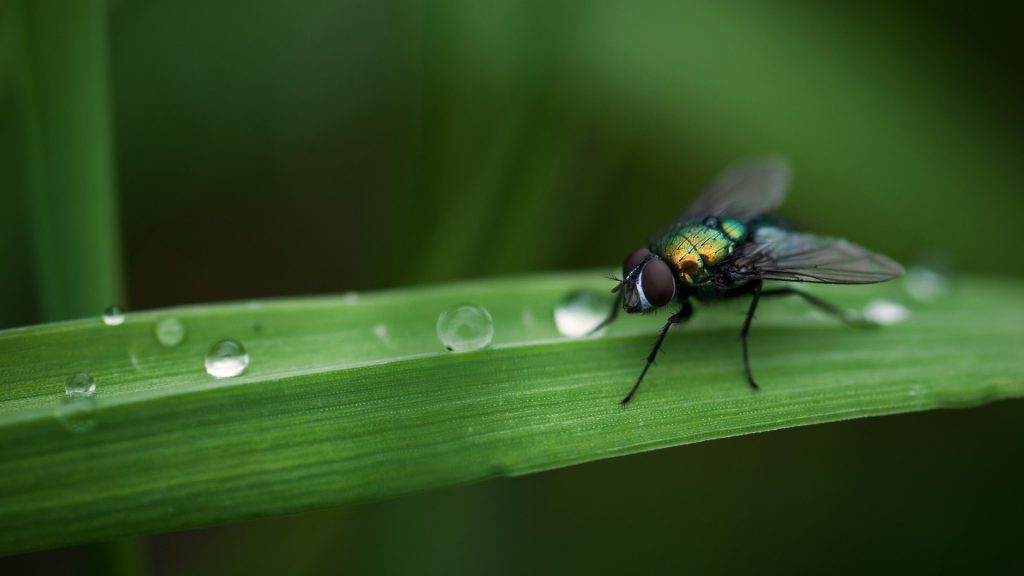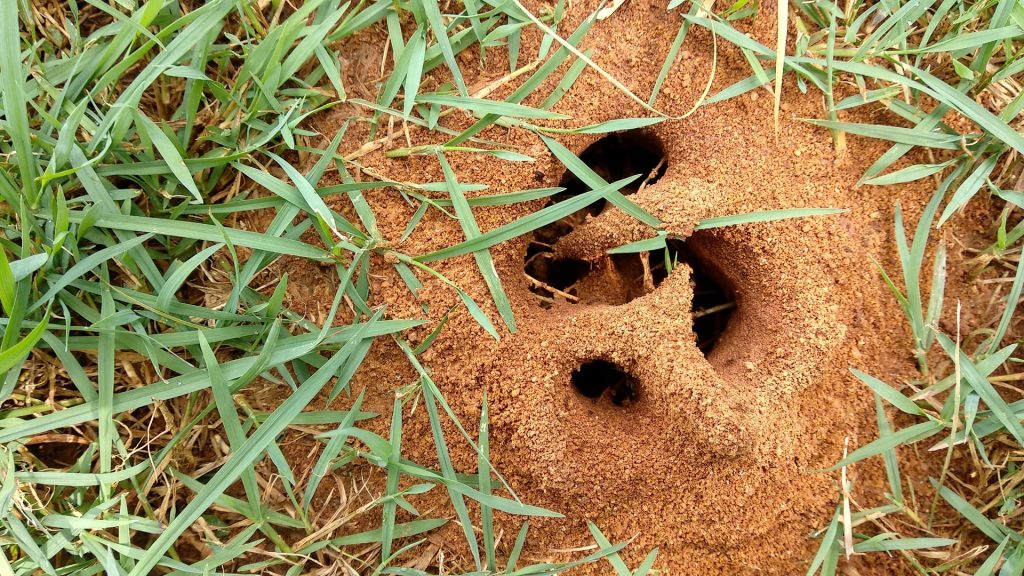
How to Get Rid of Ant Hills on Your Lawn
Ants are a normal part of the diverse ecosystem that lives within your yard, but large ant hills can be a problem.
As well as being an eyesore, they can indicate that a larger colony of ants is taking over or possibly making their way into your home, so you need to get rid of them.
How do you get rid of ant hills on your lawn? The best methods for getting rid of ant hills include pouring water into them to flood them, or using ingredients like vinegar, dish soap, or boiling water as well. The aim is to kill the ant colony that resides in them and deters the others from coming back.
There are a few simple tricks for how to get rid of ant hills in lawn areas, as well as ways to prevent them. If you’re looking for a natural approach without the use of pesticides, we’ve got some tricks for taking back control of your lawn.
How Do Ant Hills Form?
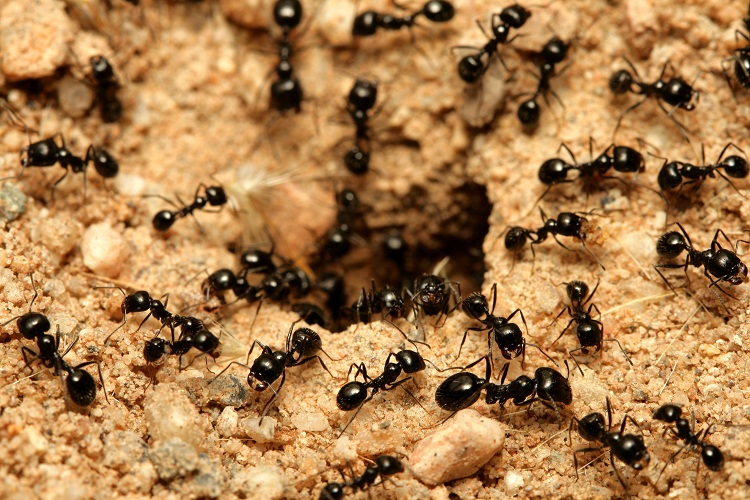
If you’ve worked hard on growing the most luscious grass possible and know that you take care good care of your lawn, it can be ruined in an instant when you spot an anthill. Anthills can be large, make a lot of mess, and do serious damage to the grass that surrounds them, but how are they created?
When ants tunnel into the ground, the subterranean structures they create cause a lot of excess earth. As the ants don’t want this earth clogging up their underground tunnels, they bring it back up to the surface and leave it there.
Eventually, the pile of the earth is so large that it forms a mound or hill, and it’s located at the entrance of their tunnel.
Tips for Preventing Ant Hills

Ants aren’t too picky in choosing a home but there are some things you can do to deter them from creating tunnels underneath your lawn. Here are a few ways to ensure that ants don’t start making a hill on your grass:
- Mow your lawn: Keep the vegetation to a minimum and cut your grass regularly. If ants feel that they’re exposed, they’re less likely to choose that spot to start tunneling in.
- Use dish detergent: Spray your lawn occasionally with a dish soap and water mixture that’s gentle on the grass but may deter ants. As a bonus, dish soap can prevent weed growth as well.
- Get rid of food: Whether you throw food scraps on the lawn or feed birds some seed, ants will be attracted to these morsels. Avoid placing any food sources on the grass and they won’t want to come near.
How to Get Rid of Ant Hills
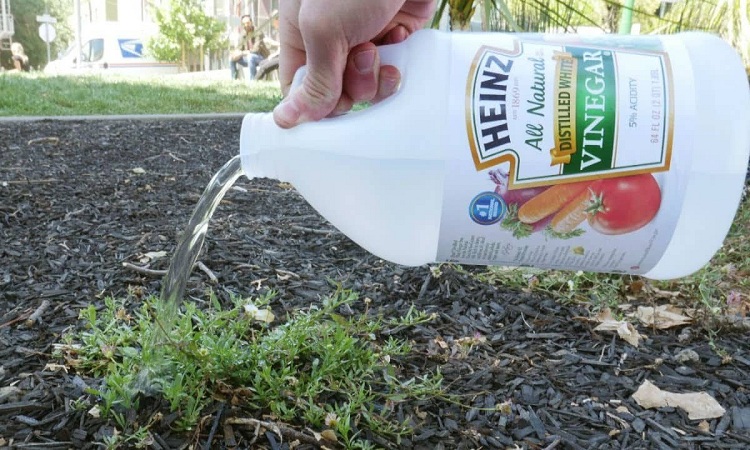
If the ants have already done the hard work and created a hill on your lawn, you have a few options to get rid of them. These are natural solutions that are safe to use around children and pets but will effectively remove ant hills from your lawn.
- Water: Turn on the garden hose and spray a steady flow of water directly into the anthill. You’ll need to leave it on for a few minutes so that it can fill the tunnels completely. Once it starts pooling on top, leave for another few minutes to ensure it’s done.
- Vinegar: Pouring vinegar directly into the anthill can throw them off the scent and kill the insects upon contact. If you want to reach further down, make a mixture of at least a few gallons. Be careful with vinegar coming into contact with your grass though, as it will kill the leaves.
- Dish soap: A simple combination is to mix dish detergent with water and pour it into the anthill. You’ll need to take the top of the anthill so you can see directly into the tunnel entrance, and have a few gallons to pour into there for it to work.
Freedom from Ant Domination
It’s natural to have ants living on your lawn and in your garden, but when they start building large hills, it can become a problem. Using any of our natural methods for ant hill removal is the easiest and gentlest way to get rid of them once and for all.
Related Questions
There are all kinds of creepy crawlies living in your garden, and not all of them are friendly. To learn more about the pests that could be doing damage to your healthy lawn, read on for a few commonly asked questions that’ll give you the basics.
Does Lawn Insecticide Affect Bees?
Lawn insecticides are commonly used to treat insects like lawn grub can be damaging to bees and other harmless insects if they come into contact with them. There are natural options that might be better at treating the troublesome pests so that you’re able to leave bees and others alone.
What’s Eating My Grass?
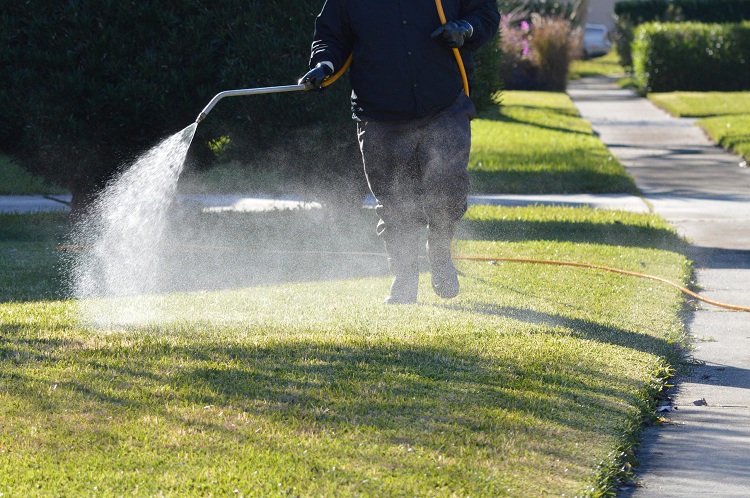
If you notice that your lawn appears to be attacked overnight, the usual culprits are cutworms, armyworms, and sod webworms.
These grubs tend to feed on grass leaves and come out at night, so you might notice patches in the morning from where they’ve fed. There are grub-specific pesticides that can be used to treat them if there’s an infestation.
Can Ants Kill My Grass?
When ants create anthills and tunnels, they can potentially damage the surrounding grass and plant life, so it’s best to take care of them before they get out of control. Some ants are fine and part of the natural ecosystem but an infestation can do serious damage to your lawn.
Resources:
